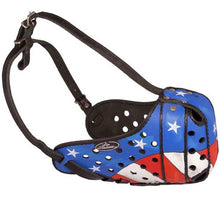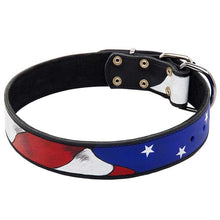Why Some People Care About Animals More Than Other Humans

If we form some of our closest bonds with other human beings, why is it that we care about some animals more than some people?
The loss of a pet can leave a huge hole in our heart and cause true grief that is just as real as losing a close family member or friend. Often people will express the love over this pet as losing their “heart dog” or “best friend.”
Most dog owners consider their dog family and react to the death of a beloved animal just as they would family, or sometimes even more so. When their passing is kind to us, we get to say goodbye and watch our pet gently gain their wings. In the worst moments, their passing can be sudden, scarring us deeply.
But our empathy toward animals can also extend to those we haven’t even met. Images of dogs languishing in shelters, abandoned animals, those that have been abused, or even killed can rip our emotions apart and evoke a stronger reaction than when we see humans suffering.
Why do we react so strongly to the suffering of animals?
One reason is biology. Humans have a strong desire to give and receive affection and our pets freely give and are easy to love. According to Hal Herzog, a professor of psychology at Western Carolina University, “When you touch and look at your pet, it makes your brain release chemicals that make you feel good,” Herzog said.
Simply put, animals have a positive effect on humans and activate our oxytocin system, which are our feel-good hormones associated with empathy, trust, and relationship building. So, when we look at or interact with our pets and other animals, it makes us feel better.
Loving pets is good for us
Loving and caring for animals can also benefit our mental health, meet our need for social interaction, improve our mood, reduce stress, lower our heart rate and blood pressure, reduce fear and anxiety, boost the immune system, reduce pain, increase feelings of trust, reduce anger, enhance empathy, and improve learning skills, according to a study in Frontiers in Psychology, Psychosocial and Psychophysiological Effect of Human-Animal Interactions.
These benefits are probably why 85 million families in the United States own pets. Of those, 42.7% own cats and 63.4% own dogs. Today, most Americans consider their pets family and freely share their hearts, home, couch, and even beds with their furry friends. Our pets have become more than friends. According to Herzog:
“American demographics have changed, and more people are living alone. People are getting married later, if they get married at all. They’re having fewer kids,” Herzog said. “People are more attached to their pets [because they’re filling a hole].”
Is animal attachment the only reason we take the death and suffering of animals so hard?
Along with friendship, Herzog believes that another reason we take the suffering or death of dogs and cats so hard is the innocence of the animal. In other words, we don’t just feel bad for them because they are animals, we feel bad for them because they’re so innocent and can’t help themselves. They’re at our mercy. He said:
“Humans can speak for themselves, as a group, while animals are helpless,” Herzog said. “People are [sometimes] more interested in helping animals because animals can’t help themselves.”
A study out of Northeastern University proved his point. In it, people’s reactions to stories of things that happened to adults, babies, dogs, and puppies were measured. According to the study, conducted by professors Jack Levin, an expert in violent crimes and mass murderers, and Arnold Arluke, a professor of sociology who studies the psychological and emotional link between animals and humans:
“Adult human crime victims receive less empathy than do child, puppy, and full-grown dog victims.”
In part of the study, the respondents were asked to respond to a story of a full-grown man, baby, dog, and puppy being beaten and suffering broken limbs. The respondents showed the same level of empathy toward the baby, puppy, and dog, less so for the man.
We have natural affection for animals
As with children, dogs and cats can’t protect themselves and rely on humans for food, shelter, medical care, and love. We have empathy toward this need and a strong desire to take care of them. They require our nurturing and easily receive it, giving us affection and companionship in return.
In addition, animals have zero ulterior motives, they don’t yell at us, they never hurt our feelings. They simply give unconditional love, which we are hardwired to receive. They don’t care what we look like, what clothes we wear, how much money we have, or what car we drive. They adore us no matter what.
Animals make us better humans
Animals capture our hearts, fulfill our need to nurture and protect, and provide companionship and love-it’s no wonder we’re touched when they’re hurt, suffering, or pass away. Even when we don’t personally know them, we feel empathy for their plight in life.
Our pets bring out the best in us and help us be better people. Even in our early years, we learn how to care for the family dog or cat and learn how to nurture the pet. They even help us become more social with other people and teach us what unconditional love is. No wonder we are outraged when they are abused, neglected, or treated with anything but the love and respect that they deserve.
Please feel free to pass this article along to your animal loving family and friends.
You may also like: How To Help A Grieving Pet When They Lose Their Dog Friend
























